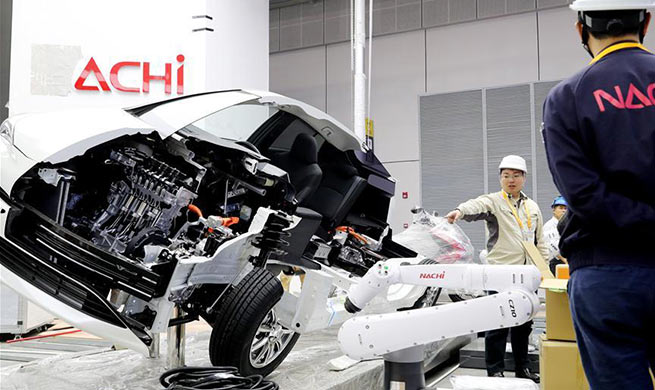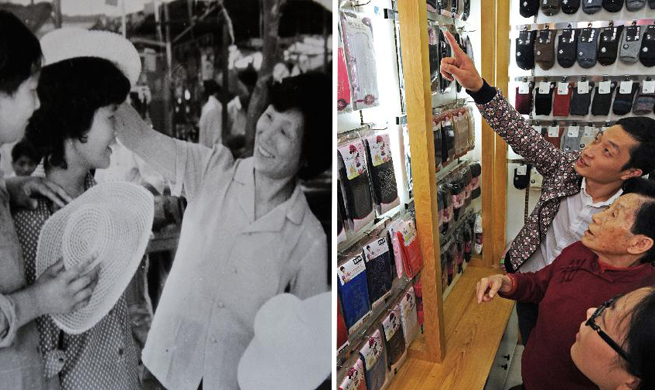by Eric J. Lyman
ROME, Oct. 30 (Xinhua) -- The long history of the stove-top moka coffee pot has, for generations, been among the most fundamental possessions of Italian families, but may be bubbling to an end in the wake of relentless competition from high-tech coffee pod machines.
However, the coffee pod machine is facing its own challenges, as pressure from environmental groups mounts amid worries about the impact the discarded pods have on the ecosystem.
The moka coffee pot has remained virtually unchanged since it was invented. Alfonso Bialetti invented the eight-sided machine in 1933. The moka pot forces boiling water upwards through a filter holding ground coffee, feeding the chamber before it is collected and served.
Bialetti's coffee maker is so iconic that it featured in New York's Museum of Modern Art and the Design Museum in London. More than 100 million units have been produced since it was first sold.
But now the Bialetti Group, the world's leading maker of the moka coffee pots, is in trouble. Bialetti said last week it was in a debt of at least 68 million euros (about 77 million U.S. dollars) and that it had "doubts over its continuity" as a company.
According to Statistica, an analytics firm, the Italian coffee pod market is nearly six times larger today than it was in 2003.
Meanwhile, data measurement company Nielsen reported that the Italian coffee pod market grew by nearly 25 percent between 2016 and 2017, while the market for ground coffee -- the kind of coffee used in mokas -- shrank by more than 5 percent.
"Everybody in Italy knows the Bialetti moka coffee pot, but the company is in trouble because consumer tastes are shifting to easier and quicker alternatives," Hildebrandt and Ferrar economist Javier Noriega told Xinhua.
That is a problem, according to environmental groups, since the pods can only be used once and are then thrown away. Studies say that those aluminum or plastic capsules can take 150 to 500 years to completely break down in landfill.
"It's a significant part of a much larger problem connected to single-use products and how they contribute to global waste," Giorgio Zampetti, director general of the Italian environmental lobby group Legambiente, said in an interview.
But Zampetti and others said there is reason for optimism: many companies are working on reusable pods that consumers can refill with ground coffee. Major Italian producers of coffee and coffee pods themselves are among those working on ways to make pods more easily recyclable, or even biodegradable.
"Companies will always look to make the products meet consumers' demand, but there is no reason those products cannot be made in a more sustainable way," Andrea Di Stefano, head of special products for Italy-based bioplastics company Novamont, told Xinhua.
Novamont is among the leaders of the sector of biodegradable pods made of vegetable-based plastic. Di Stefano said the low-environmental-impact products account for only around two percent of the Italian pod market now, but said that could grow to as much as half in the coming years.
"The thing that makes me most hopeful is that the companies pushing for change are the same ones that dominate the market," said Zampetti.
"Sometimes innovations come from small, fringe companies and if they succeed it takes years. But almost all the big companies connected to the coffee pod sector are working toward a solution," Zampetti added.













